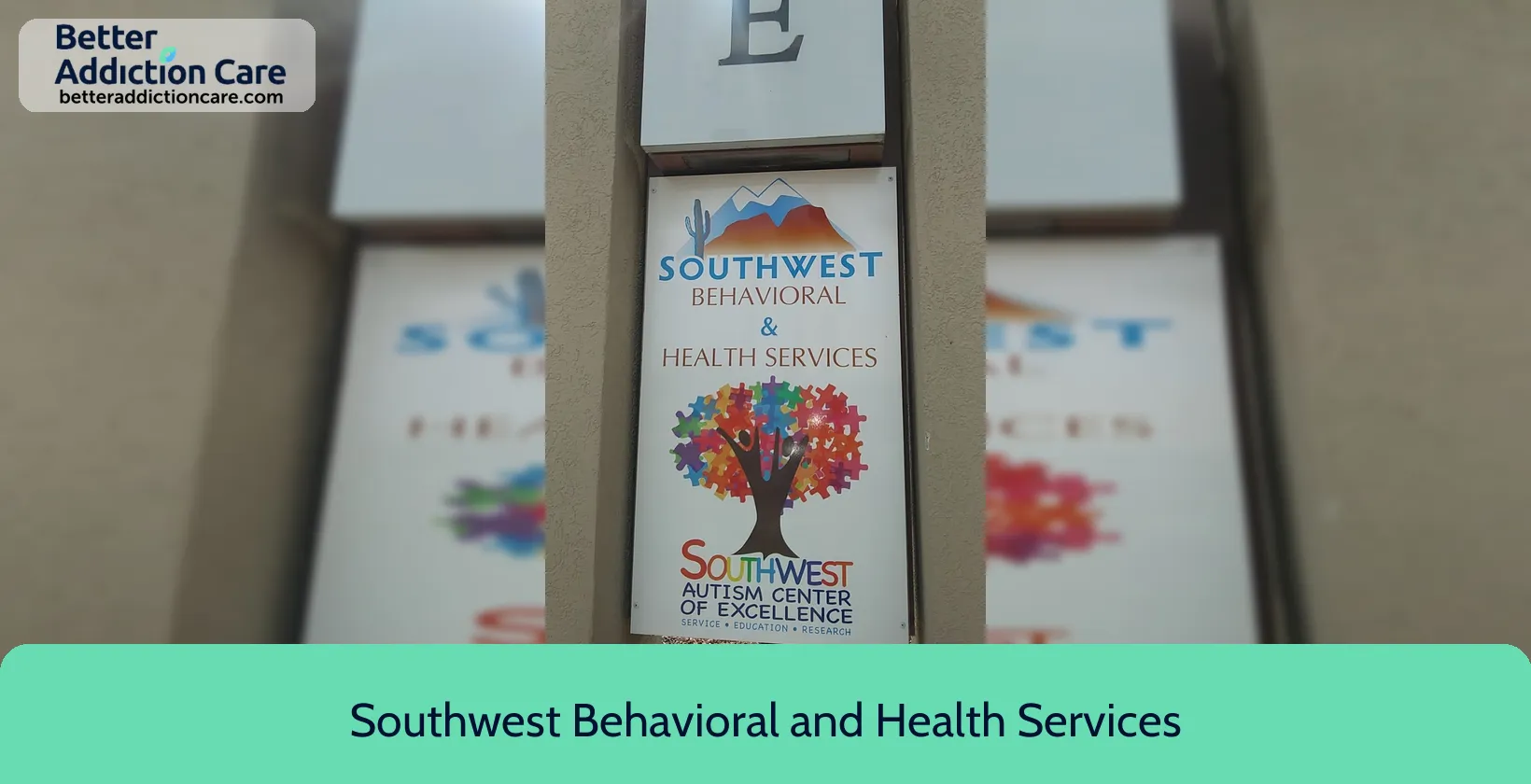Southwest Behavioral and Health Services - Metro Outpatient Clinic
Overview
Southwest Behavioral and Health Services - Metro Outpatient Clinic is a substance abuse treatment center for people seeking treatment near Maricopa County. As part of their treatment modalities for recovery, Southwest Behavioral and Health Services - Metro Outpatient Clinic provides individual psychotherapy, couples/family therapy, and cognitive behavioral therapy during treatment. Southwest Behavioral and Health Services - Metro Outpatient Clinic is located in Phoenix, Arizona, accepting cash or self-payment for treatment.
Southwest Behavioral and Health Services - Metro Outpatient Clinic at a Glance
Payment Options
- Cash or self-payment
- Medicaid
- Medicare
- State-financed health insurance plan other than Medicaid
- Private health insurance
Assessments
- Screening for tobacco use
- Comprehensive mental health assessment
- Comprehensive substance use assessment
- Outreach to persons in the community
- Screening for mental disorders
Age Groups
- Adolescents
- Young adults
- Children/adolescents
- Adults
- Seniors
Ancillary Services
- Case management service
- Chronic disease/illness management
- Diet and exercise counseling
- Education services
- Family psychoeducation
Highlights About Southwest Behavioral and Health Services - Metro Outpatient Clinic
7.06/10
With an overall rating of 7.06/10, this facility has following balanced range of services. Alcohol Rehabilitation: 8.00/10, Drug Rehab and Detox: 6.00/10, Insurance and Payments: 6.40/10, Treatment Options: 7.82/10.-
Alcohol Rehabilitation 8.00
-
Treatment Options 7.82
-
Insurance and Payments 6.40
-
Drug Rehab and Detox 6.00
Accreditations
State department of health:

Government agencies issue State Licenses, granting permission to rehabilitation organizations to conduct their business operations lawfully within specific geographic regions. Generally, the particular rehabilitation programs offered by a facility and its physical location dictate the necessary licenses needed for legal operation.
Commission on Accreditation of Rehabilitation Facilities (CARF):

CARF accreditation is a prestigious recognition granted to rehabilitation and human service organizations. It signifies that an organization meets high-quality standards, having undergone a rigorous evaluation process. CARF accreditation boosts an organization's credibility and ensures top-notch care for individuals with disabilities, injuries, or healthcare needs.
Treatment At Southwest Behavioral and Health Services - Metro Outpatient Clinic
Treatment Conditions
- Alcoholism
- Mental health treatment
- Substance use treatment
- Co-occurring Disorders
Care Levels
- Outpatient
- Regular outpatient treatment
Treatment Modalities
- Individual psychotherapy
- Couples/family therapy
- Cognitive behavioral therapy
- Integrated Mental and Substance Use Disorder treatment
- Telemedicine/telehealth therapy
Ancillary Services
Languages
- Sign language services for the deaf and hard of hearing
- Spanish
Additional Services
- Pharmacotherapies administered during treatment
- Housing services
- Drug or alcohol urine screening
Special Programs
- Clients with co-occurring mental and substance use disorders
- Clients who have experienced trauma
- Children/adolescents with serious emotional disturbance (SED)
Contact Information
Read our Most Recent Article About Drug Addiction
DISCLAIMER: The facility name, logo and brand are the property and registered trademarks of Southwest Behavioral and Health Services - Metro Outpatient Clinic, and are being used for identification and informational purposes only. Use of these names, logos and brands shall not imply endorsement. BetterAddictionCare.com is not affiliated with or sponsored by Southwest Behavioral and Health Services - Metro Outpatient Clinic.









